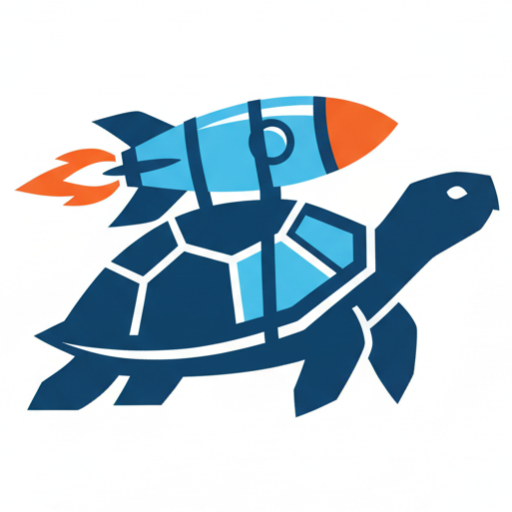Procrastination is the ultimate “final boss” that we all face at some point in life. It keeps us stuck on the starting screen instead of progressing through our tasks. However, the same principles that drive us to complete quests, defeat high-level enemies, and explore open worlds can be applied to tackling our to-do lists and achieving our goals.
In this article, we’ll explore how the gaming mindset focusing on precision, strategy, and incremental progress can help beat procrastination and increase productivity. Drawing from personal experiences as a gamer and productivity enthusiast, I’ll share actionable tips to approach life like a game. By the end, you’ll be ready to tackle procrastination with the determination of a gamer chasing a 100% completion rate.

Understanding Procrastination
Before we can dive into productivity, it’s important to understand the nature of procrastination. At its core, procrastination is a delay in starting or completing tasks, often due to fear, lack of motivation, or feeling overwhelmed. It is similar to standing on the edge of a massive open-world map, unsure of where to begin.
In gaming, procrastination might look like avoiding the main storyline to complete side quests or spending hours managing an inventory instead of tackling the next mission. Similarly, in life, it manifests as prioritizing low-stakes tasks or distractions over meaningful work.
I have had moments where I avoided key responsibilities. However, I realized that procrastination often stems from feeling unprepared. This led me to embrace a gamer’s approach to tackling tasks breaking them down into manageable missions, gathering the right tools, and leveling up my skills before diving in.
The Gamer’s Mindset: A Winning Attitude
Gamers know the thrill of mastering a game’s mechanics, overcoming obstacles, and achieving goals. This mindset is about precision, preparation, and persistence, qualities that are just as valuable in real life.
1. Preparation is Key
In gaming, preparation can determine success. Whether analyzing the map, gearing up with the best equipment, or studying enemy patterns, preparation ensures a smoother run. Before starting a mission, I analyze the objectives, gather the best tools, and plan my strategy for flawless execution.
In real life, this translates to tackling tasks with the same meticulous preparation. Before diving into work, gather all the necessary information and resources. For example, if working on a project, clarify objectives, gather relevant data, and break the task into smaller parts. This eliminates unnecessary backtracking and builds confidence.
2. Grinding and Leveling Up
Some games present enemies that are too powerful to defeat. Without the right gear or skills, even the perfect strategy will not be enough. The solution? Go back to the grind, leveling up, acquiring better equipment, and sharpening abilities.
This principle applies to life. Tackling a major challenge often requires honing skills or acquiring new tools. Whether learning a new software, taking a course, or improving physical stamina, leveling up can make difficult tasks more manageable. Dedicating time to skill-building in real life makes significant challenges far less daunting.
3. Focus on One Mission at a Time
In games, tackling multiple objectives simultaneously often leads to chaos. A methodical approach prevents overwhelm and ensures steady progress.
In real life, break large projects into smaller, actionable tasks. Completing one section at a time provides a sense of accomplishment and motivates continued progress.
Strategies to Overcome Procrastination Using Gaming Principles
1. Treat Tasks as Quests
Every task, no matter how mundane, can be seen as a quest. Define objectives clearly, identify the resources needed, and map out a completion plan. This shift in perspective transforms tasks from burdens into opportunities for achievement.
When feeling unmotivated, taking a short gaming break can help. Immersing in a mission, analyzing the map, strategizing, and executing with precision can reset focus. Applying the same mindset to work can improve efficiency and motivation.
2. Celebrate Small Wins
Gamers celebrate every victory, whether leveling up, defeating a boss, or unlocking an achievement. In real life, celebrating small wins can build momentum and maintain motivation. After completing a task, take a moment to acknowledge progress.
In life, small victories could be completing a project milestone, meeting a deadline, or effectively handling a challenge at work. These achievements are proof of progress and resilience.
3. Manage Time Like a Game Timer
While strict schedules may not work for everyone, time management techniques like the Pomodoro technique can be effective. Working for a set period (e.g., 25 minutes) followed by a short break helps maintain focus and prevents burnout.
Taking structured breaks, even for gaming, can serve as a mental reset, improving long-term productivity.
4. Reframe Setbacks as Learning Opportunities
In gaming, failure is part of the journey. Dying in a game or failing a mission is an opportunity to learn, adapt, and try again. Similarly, in real life, setbacks should be viewed as learning experiences. Analyze mistakes, adjust strategies, and keep pushing forward.
5. Lean on Your Guild (Community)
In both gaming and life, community matters. Joining gaming communities has taught me the value of learning from others while developing my own strategies. In real life, collaboration and feedback are equally important. Holding each other accountable, sharing insights, and supporting team members leads to collective improvement.
Conclusion
Procrastination does not have to control productivity. By adopting a gamer’s mindset, preparing thoroughly, leveling up skills, focusing on one mission at a time, and celebrating small wins, it is possible to tackle tasks with precision and determination.
Life is the ultimate open-world game. Approach each day as a series of quests, and do not be afraid to grind, fail, and learn along the way. With practice, overcoming procrastination and achieving goals will become second nature.
Related Posts:
Want to level up time management and motivation? Check out these posts:
- Unlocking the Power of Time Management: Top Strategies for Maximum Productivity
- The Science of Motivation: How to Stay Driven Every Day
Looking to boost productivity further? Explore these articles:

